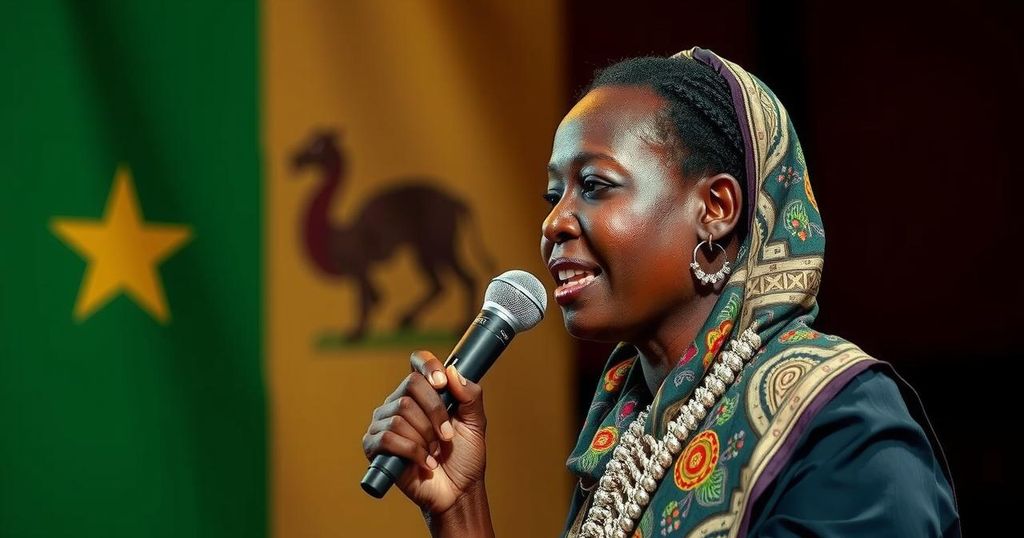Namibia is poised to elect its first female president, Netumbo Nandi-Ndaitwah, who currently leads the presidential race with 54.82 percent of the votes counted. However, she must exceed the 50 percent threshold to avoid a run-off election. The election has faced numerous disputes regarding its legitimacy, with the main opposition party condemning the process as flawed. The situation highlights critical issues within the political framework of Namibia, including public discontent with ongoing economic challenges.
Namibia is on the verge of electing its first female president, with Netumbo Nandi-Ndaitwah maintaining a strong lead in the ongoing vote count from the disputed election held last week. As of the latest updates, with approximately 65.57 percent of votes tallied, Nandi-Ndaitwah, the candidate from the ruling South West Africa People’s Organisation (SWAPO), has secured 54.82 percent of the votes. However, she may be compelled to enter a run-off election if she does not surpass the critical threshold of 50 percent by the time all results are finalized later this week.
The election experienced significant delays and challenges, notably due to technical issues and ballot paper shortages, which prolonged the voting process. Consequently, the main opposition party, the Independent Patriots for Change (IPC), has denounced the election process as illegitimate, stating that its candidate, Panduleni Itula, has garnered 28 percent of the votes thus far. The counts so far represent 79 out of 121 constituencies, including nearly all of the capital, Windhoek, with a voter turnout of 73 percent from approximately 1.5 million registered voters.
Logistical problems on election day caused long queues, prompting many voters to abandon their attempts to vote. The opposition has expressed intent to contest the election results in court, accusing the electoral commission of violating the rule of law and undermining the democratic process, which has been historically stable in Namibia. Nandi-Ndaitwah’s campaign, as vice president, highlights the challenges facing the nation, including high youth unemployment and economic disparities that have notably disenchanted younger voters.
The backdrop to this election is Namibia’s enduring political landscape dominated by the SWAPO party, which has been at the helm since it gained independence from apartheid South Africa in 1990. Despite a reputation for stability in its electoral processes, the recent elections have faced allegations of technical misconduct, including inadequate ballot supplies and extensive delays in polling. Such issues have raised concerns about the transparency and fairness of the electoral system, prompting significant backlash from opposition parties that aim to uphold democratic standards in the face of these alleged irregularities.
In summary, Namibia’s presidential election is marked by the prospect of electing its first female president while simultaneously navigating significant controversy regarding the election’s legitimacy. As Netumbo Nandi-Ndaitwah leads the race, the opposition’s vehement rejection of the electoral process raises critical questions about the future of democracy in Namibia. With potential court challenges looming, the resolution of this electoral conflict will significantly impact the political landscape of the nation moving forward.
Original Source: www.aljazeera.com






